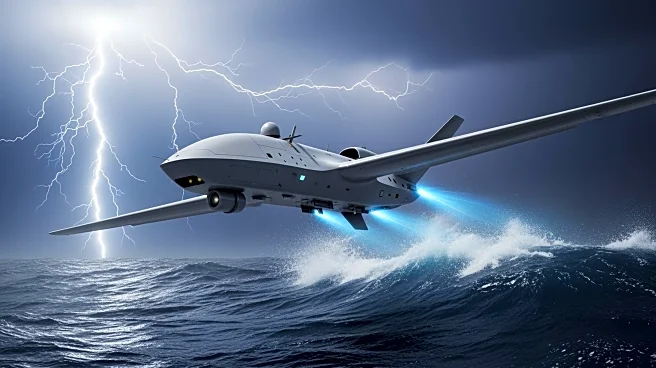What's Happening?
President Trump has reportedly bypassed the War Powers Resolution's 60-day limit on military actions without congressional approval by claiming that recent strikes on Latin American drug boats do not constitute 'hostilities.' The U.S. military has conducted
15 strikes, resulting in 65 deaths, but has not provided evidence to support its allegations against the boats. The White House argues that these operations, conducted by drones from naval vessels, do not endanger American personnel and thus fall outside the scope of the War Powers Resolution. This interpretation echoes a similar situation in 2011 when President Obama continued military operations in Libya beyond the 60-day limit by arguing that U.S. involvement did not amount to 'hostilities.'
Why It's Important?
This development could have significant implications for U.S. military policy and the balance of power between the executive and legislative branches. If Congress accepts the White House's interpretation, it could set a precedent allowing future administrations to conduct military operations without congressional oversight, potentially leading to unchecked executive power in military affairs. This situation also raises concerns about the legality and ethical implications of such military actions, as well as the potential for increased military engagement in Latin America without clear legislative backing.
What's Next?
The White House's stance may face challenges from Congress, which could seek to assert its authority under the War Powers Resolution. Legal experts and former government officials have called for legislative action to counter the executive's interpretation and prevent unauthorized military actions. The situation may also prompt broader discussions on the need to reform the War Powers Resolution to better define and limit the scope of executive military actions.
Beyond the Headlines
The legal maneuvering by the White House highlights ongoing tensions between the executive and legislative branches over military authority. This case could influence future debates on the separation of powers and the role of Congress in authorizing military force. Additionally, the use of drones in these operations raises questions about the ethical and strategic implications of remote warfare, particularly in terms of accountability and civilian impact.
















